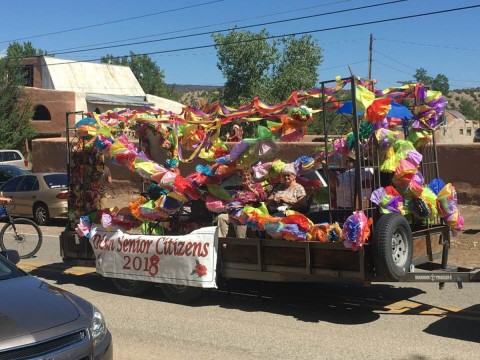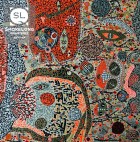1
I remember three boys sitting outside of the Arco on Sheep Creek road eating jalapeño and cheese corndogs, two for a dollar. One of the boys flings a corndog onto the roof of the Burger King next door. He turns and smiles. He’ll have that same smile on his face five years later when, somewhat drunk, he stands in the middle of a two-lane highway, arms outstretched, another corndog-throw moment, just before the jeep strikes him at 47 miles an hour.
2
He didn’t die, though I had a dog who was struck by a car not twenty feet away on the same highway. The dog died. There was a bit of snow on the ground. It snows here each year, right on the sand, and on the scrub and cactus. Snow in the desert. I realized then, as I wheelbarrowed a dead dog to the back yard that it’s the nature of Phelan’s roadways. Two-lane highways stretch across the desert. Things are struck and killed. In the desert, we bury our pets in our yards, the graves plotted distinctly in our memory. Phelan is heaped up into the cold elevations, swollen on decades of buried pets.
3
But the boy didn’t die, and if I ever really believed in God, it was in those months that he was tubed and wired in the ICU, his chest mechanically rising, seeing his skeletal presence and, in the rare moments when he opened his eyes, his gaze of unknowing. He would be like that for weeks. He found God, and his wife, and cigarettes in the aftermath of it all.
4
He used to go to church with his family, still does probably, and they would all sit in the back. All with terrible vision and his dad, terrible hearing, and sitting in the back not being able to see or hear, and it all seemed silly. But then again, I also watched him flutter in the shock of light from Jeep headlights. I watched him sail and pummel into rough asphalt, head split and legs crushed, shoes left behind, and him not dying. I suppose that if I was God, I’d sit in the back too.
5
It’s hard not to be a Christian living in Phelan, a town with two stoplights and more than a dozen churches. There are so many Christians that they congest the town with their presence and prayers. The prayers sit so thick across the town that you can smell the stink of it all, and once, when I was driving a dirt road to go visit my friend before the Jeep struck him, a carful of Christians barreled around a blind turn and we collided head-on-head. No one was hurt. But after the collision, the families of the Christians arrived. Car after car they came down the narrow dirt road and climbed out in their God-clothes. The desert was stuffed with Christians that day, and all of them chattering about the tire lines cut in the sand, their cheeks puffed with suspicion and blame.
6
The problem with head trauma is that you don’t remember what happened. Three boys out past midnight, somewhat drunk on a two-lane highway, and one of them struck by a Jeep. Later, the waiting room is stuffed with his family and stuffed with their prayers, and their cheeks are swollen and stuffed with blame and suspicion. When he wakes up, he won’t remember what happened. There’s a void in him where a recollection should go, and all that prayer and suspicion is so thick in the air, it presses in, filling all.
7
Live here long enough and you’ll become a mechanic from fixing your own vehicle, your tools mixed with cat litter from that time your son dropped the cat box. He didn’t clean it up. You didn’t either. Broken things stay broken, and so on. There’s a picture in the hallway covering a fist-sized hole. There’s a leather jacket on the bookshelf cut open by paramedic scissors. That’s dried blood, if it doesn’t bother you.
8
We drove the dirt roads, hi-beams cutting the desert open before us, the stars hanging tangible and wet-looking in the wide-open desert sky. Neither of us had gods then, before the Jeep hit him, and we chased blinking red lights perched on the low desert hills. We leave the truck and walk the sloping desert floor south. On a night like this the moon is bright enough that the Joshua trees cast shadows and you can see ghosts.

Notes from Guest Reader Janika Oza
What I love about this story is the sense of haunting and unraveling that happens over its course. The piece is built like memory: fickle, shifting, fragmented, but it all comes together through fresh and sharp details that continue to stay with me.


 The SmokeLong Grand Micro Contest (The Mikey) is now an annual competition celebrating and compensating the best micro fiction and nonfiction online.
The SmokeLong Grand Micro Contest (The Mikey) is now an annual competition celebrating and compensating the best micro fiction and nonfiction online.